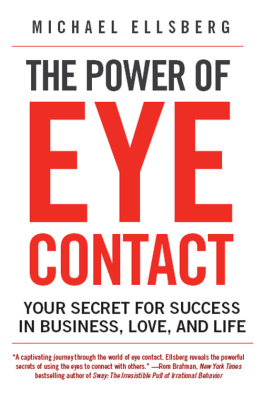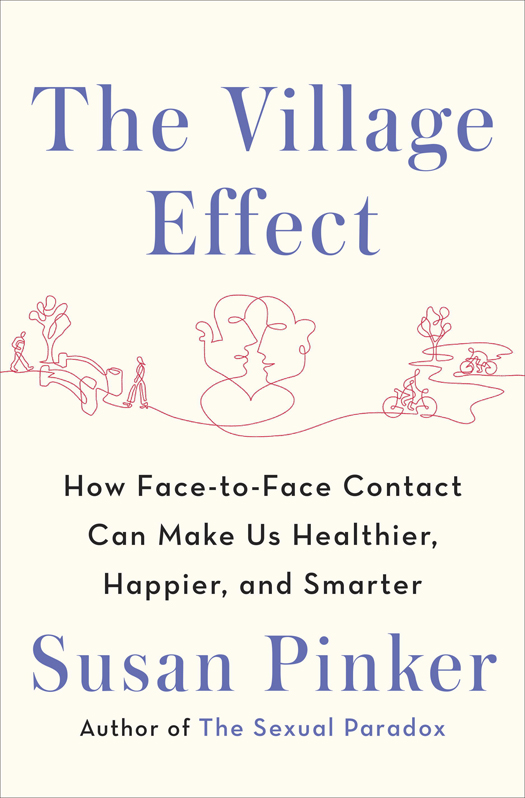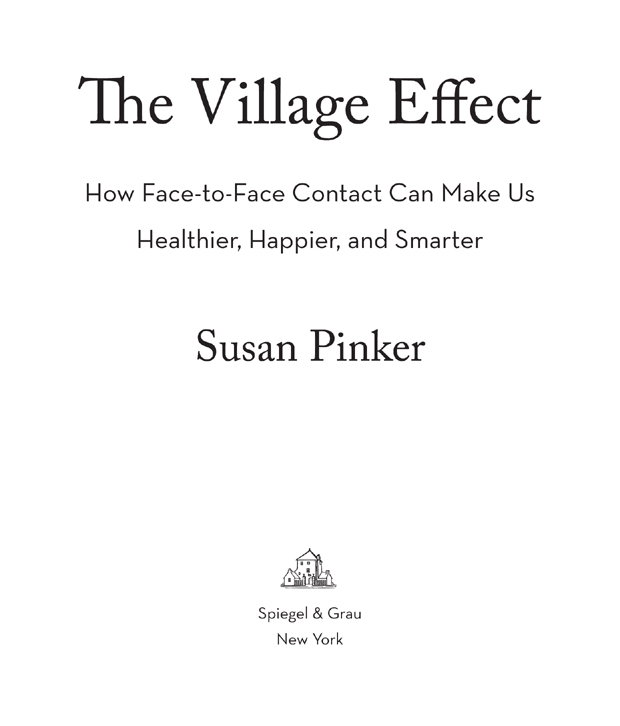Susan Pinker - The Village Effect: How Face-to-Face Contact Can Make Us Healthier, Happier, and Smarter
Here you can read online Susan Pinker - The Village Effect: How Face-to-Face Contact Can Make Us Healthier, Happier, and Smarter full text of the book (entire story) in english for free. Download pdf and epub, get meaning, cover and reviews about this ebook. year: 2014, publisher: Spiegel & Grau, genre: Politics. Description of the work, (preface) as well as reviews are available. Best literature library LitArk.com created for fans of good reading and offers a wide selection of genres:
Romance novel
Science fiction
Adventure
Detective
Science
History
Home and family
Prose
Art
Politics
Computer
Non-fiction
Religion
Business
Children
Humor
Choose a favorite category and find really read worthwhile books. Enjoy immersion in the world of imagination, feel the emotions of the characters or learn something new for yourself, make an fascinating discovery.

- Book:The Village Effect: How Face-to-Face Contact Can Make Us Healthier, Happier, and Smarter
- Author:
- Publisher:Spiegel & Grau
- Genre:
- Year:2014
- Rating:5 / 5
- Favourites:Add to favourites
- Your mark:
The Village Effect: How Face-to-Face Contact Can Make Us Healthier, Happier, and Smarter: summary, description and annotation
We offer to read an annotation, description, summary or preface (depends on what the author of the book "The Village Effect: How Face-to-Face Contact Can Make Us Healthier, Happier, and Smarter" wrote himself). If you haven't found the necessary information about the book — write in the comments, we will try to find it.
From birth to death, human beings are hardwired to connect to other human beings. Face-to-face contact matters: tight bonds of friendship and love heal us, help children learn, extend our lives, and make us happy. Looser in-person bonds matter, too, combining with our close relationships to form a personal village around us, one that exerts unique effects. Not just any social networks will do: we need the real, in-the-flesh encounters that tie human families, groups of friends, and communities together.
Marrying the findings of the new field of social neuroscience with gripping human stories, Susan Pinker explores the impact of face-to-face contact from cradle to grave, from city to Sardinian mountain village, from classroom to workplace, from love to marriage to divorce. Her results are enlightening and enlivening, and they challenge many of our assumptions. Most of us have left the literal village behind and dont want to give up our new technologies to go back there. But, as Pinker writes so compellingly, we need close social bonds and uninterrupted face-time with our friends and families in order to thriveeven to survive. Creating our own village effect makes us happier. It can also save our lives.
Advance praise for The Village Effect
A terrific book . . . Pinker makes a hardheaded case for a softhearted virtue. Read this book. Then talk about itin person!with a friend.Daniel H. Pink, New York Times bestselling author of Drive and To Sell Is Human
What do Sardinian men, Trader Joes employees, and nuns have in common? Real social networksthough not the kind youll find on Facebook or Twitter. Susan Pinkers delightful book shows why face-to-face interaction at home, school, and work makes us healthier, smarter, and more successful.Charles Duhigg, New York Times bestselling author of The Power of Habit: Why We Do What We Do in Life and Business
Provocative and engaging . . . Pinker is a great storyteller and a thoughtful scholar. This is an important book, one that will shape how we think about the increasingly virtual world we all live in.Paul Bloom, author of Just Babies: The Origins of Good and Evil
A fascinating, nuanced study of that most fundamental need: the need for human connection.Maria Konnikova, New York Times bestselling author of Mastermind: How to Think Like Sherlock Holmes
The Village Effect is a fascinating explanation of why we need regular contact with people, not just screensand why time spent with your neighbors will enrich and extend your life in ways you never imagined.John Tierney, New York Times bestselling co-author of Willpower: Rediscovering the Greatest Human Strength
With a raft of surprising data, this compulsively readable, lively and meticulously researched book shows that direct and frequent human contact is at least as important to our survival as clean air or good nutrition.Christina Hoff Sommers, author of Freedom Feminism: Its Surprising History and Why It Matters Today
Susan Pinker: author's other books
Who wrote The Village Effect: How Face-to-Face Contact Can Make Us Healthier, Happier, and Smarter? Find out the surname, the name of the author of the book and a list of all author's works by series.


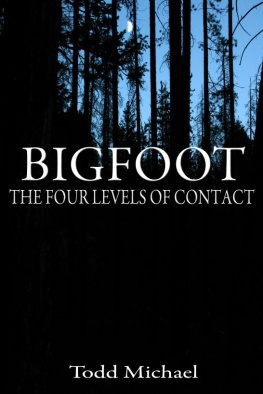


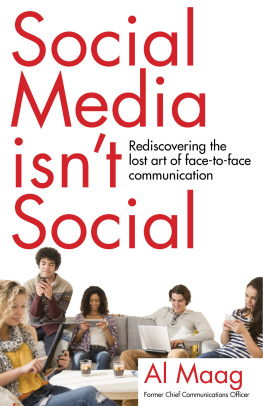

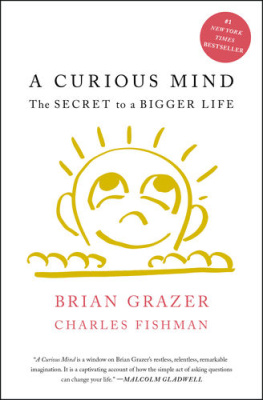
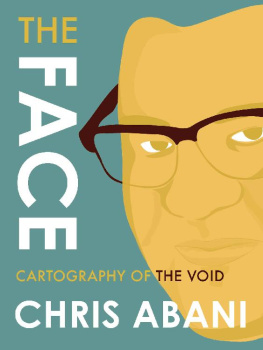
![Wendelle C. Stevens - UFO Contact from Andromeda: Extraterrestrial Prophecy [face to face]](/uploads/posts/book/133614/thumbs/wendelle-c-stevens-ufo-contact-from-andromeda.jpg)

